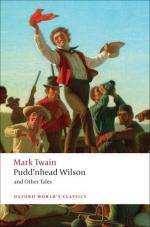Postscript—THE JEW AS SOLDIER
When I published the above article in ‘Harper’s Monthly,’ I was ignorant —like the rest of the Christian world—of the fact that the Jew had a record as a soldier. I have since seen the official statistics, and I find that he furnished soldiers and high officers to the Revolution, the War of 1812, and the Mexican War. In the Civil War he was represented in the armies and navies of both the North and the South by 10 per cent of his numerical strength—the same percentage that was furnished by the Christian populations of the two sections. This large fact means more than it seems to mean; for it means that the Jew’s patriotism was not merely level with the Christian’s, but overpassed it. When the Christian volunteer arrived in camp he got a welcome and applause, but as a rule the Jew got a snub. His company was not desired, and he was made to feel it. That he nevertheless conquered his wounded pride and sacrificed both that and his blood for his flag raises the average and quality of his patriotism above the Christian’s. His record for capacity, for fidelity, and for gallant soldiership in the field is as good as any one’s. This is true of the Jewish private soldiers and of the Jewish generals alike. Major-General O. O. Howard speaks of one of his Jewish staff officers as being ‘of the bravest and best;’ of another—killed at Chancellorsville —as being ‘a true friend and a brave officer;’ he highly praises two of his Jewish brigadier-generals; finally, he uses these strong words: ’Intrinsically there are no more patriotic men to be found in the country than those who claim to be of Hebrew descent, and who served with me in parallel commands or more directly under my instructions.’
Fourteen Jewish Confederate and Union families contributed, between them, fifty-one soldiers to the war. Among these, a father and three sons; and another, a father and four sons.
In the above article I was neither able to endorse nor repel the common approach that the Jew is willing to feed upon a country but not to fight for it, because I did not know whether it was true or false. I supposed it to be true, but it is not allowable to endorse wandering maxims upon supposition—except when one is trying to make out a case. That slur upon the Jew cannot hold up its head in presence of the figures of the War Department. It has done its work, and done it long and faithfully, and with high approval: it ought to be pensioned off now, and retired from active service.




